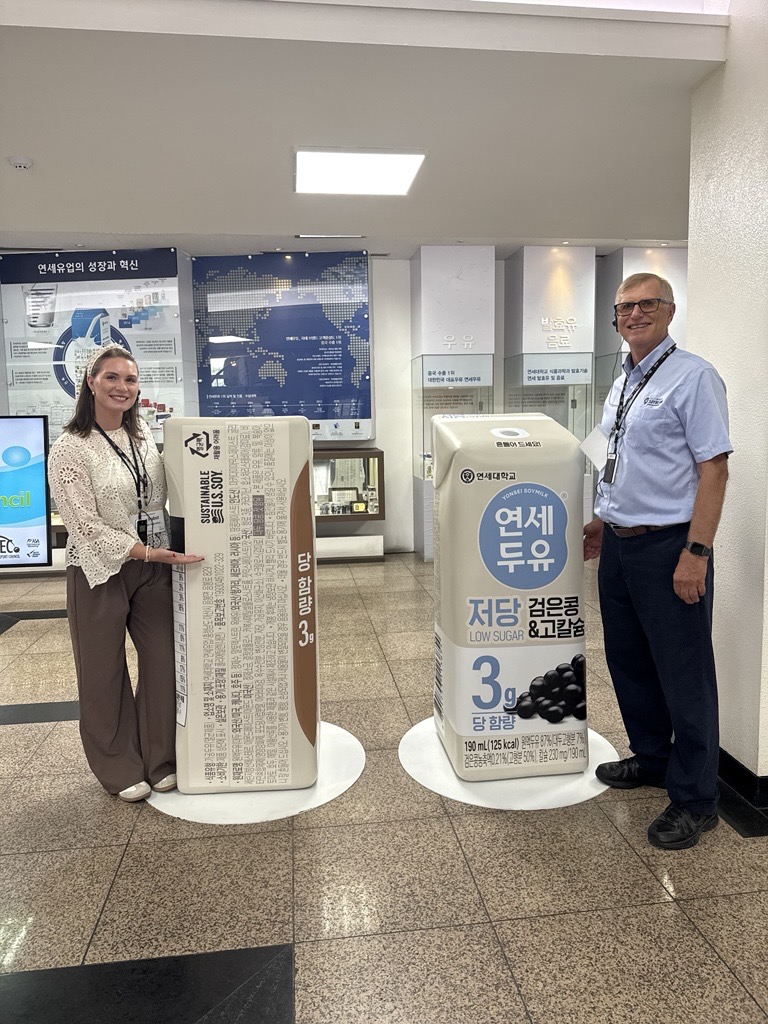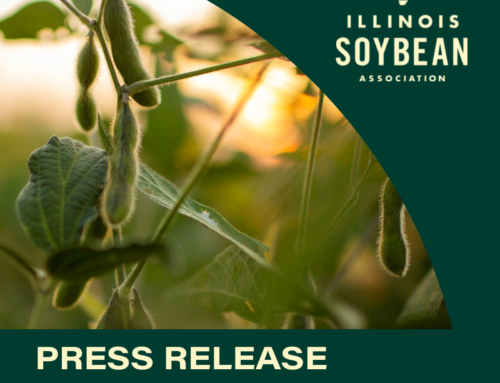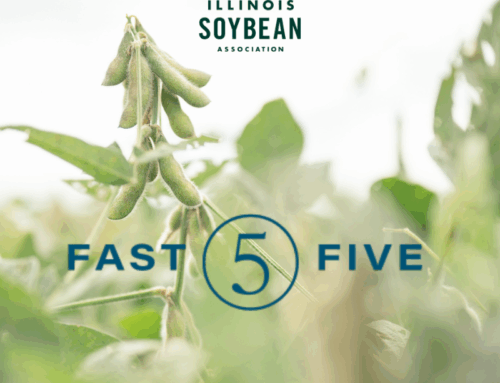Travel opportunities open the door for new relationships and experiences, offering growth to soybean export markets. These trips bring delegates directly to the marketplace where U.S. soybeans are in use. This September, a delegation of 29 farmers and staff from 12 different U.S. soybean-producing states traveled to South Korea and Japan for a weeklong learning mission. From bustling ports in Incheon to research labs in Tokyo, the group saw firsthand how U.S. soy is making an impact in two of Asia’s most influential markets.
With 51.5 million people packed into a country the size of Indiana, South Korea depends heavily on imports and views soy as essential for both feed and food. Sustainability is a clear priority for Korean buyers, with more than 85% of households indicating they care about sourcing. Visits to CJ Cheiljedang’s crushing plant and Yonsei University Dairies, which proudly uses the Sustainable U.S. Soy (SUSS) logo, reinforced how quality and traceability drive purchasing decisions.
In Japan, the tone shifted to a nation balancing tradition with innovation. With 125 million people and one of the oldest demographics in the world, soy remains deeply embedded in culture from miso to tofu to soy sauce. At Fuji Oil and Kewpie R&D Center, we saw how Japanese companies elevate soy into health-conscious and export-ready products. A meeting with the Minister Counselor for Ag Affairs encouraged meaningful conversation and new ideas as Gene Bailey quoted, “Japanese consumers demand excellence, and U.S. soy has built trust through decades of consistency.”
However, both markets still present challenges as price competition in Korea and demographic shifts in Japan mark just two hurdles in the marketplace. But the growth opportunities far outweigh the costs. From opportunities in the food and oil space to sustainability metrics offering increased value, the mission reaffirmed that U.S. soy remains a trusted partner. By investing in market development, research, and sustainability, the checkoff is ensuring U.S. soy farmers are well-positioned to continue growth opportunities in mature markets like Korea and Japan. As one delegate stated, “Every conversation here connects back to one goal: keeping Illinois soy farmers competitive on the world stage.”




